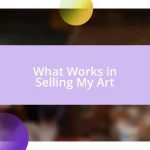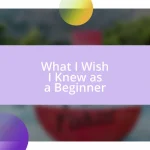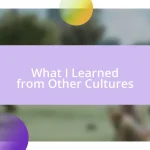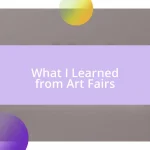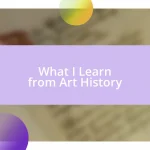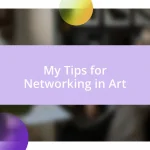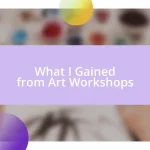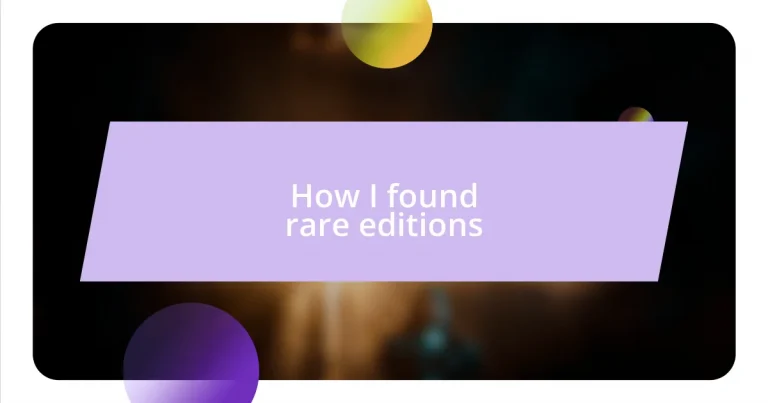Key takeaways:
- Rare editions offer a unique emotional connection to literary history, enhancing the thrill of discovery.
- Building a collector network through local meet-ups and online communities fosters camaraderie and sharing of valuable resources.
- Researching authenticity and pricing is crucial for making informed purchases while trusting one’s instincts can lead to more satisfying decisions.
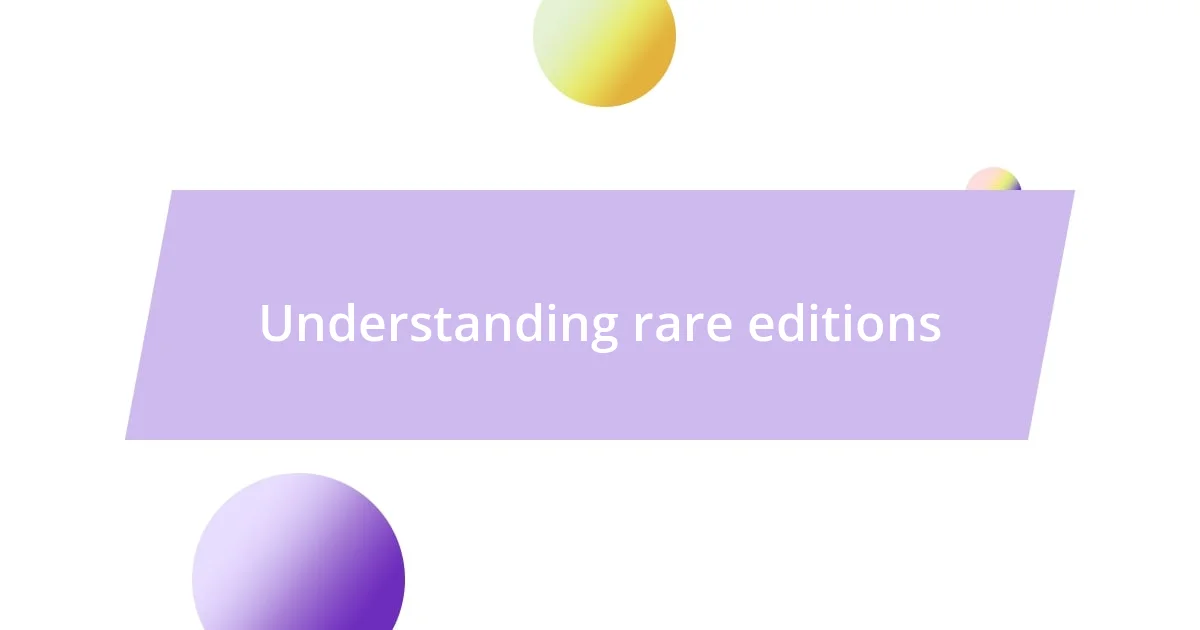
Understanding rare editions
Rare editions are more than just books; they represent a piece of literary history. Whenever I discover a first edition or a signed copy, it feels like finding a hidden treasure, sparking a rush of excitement. Have you ever held a book that felt alive with stories, whispering the secrets of its past?
The allure of rare editions often lies in their uniqueness. For instance, I stumbled upon a limited-release novel at a quaint bookstore, tucked away on a dusty shelf. The moment I opened the book and saw the author’s name hand-signed, I could hardly contain my emotions—it’s those little details that make every rare edition truly special.
Conversely, the hunt for these editions can evoke a mix of emotions: anticipation, joy, and sometimes disappointment. I’ve spent countless hours scouring online listings, only to find that someone else has already nabbed a coveted piece. But each unsuccessful search only deepens my appreciation for the rare finds when they finally come my way, making the reward feel all the more worthwhile.
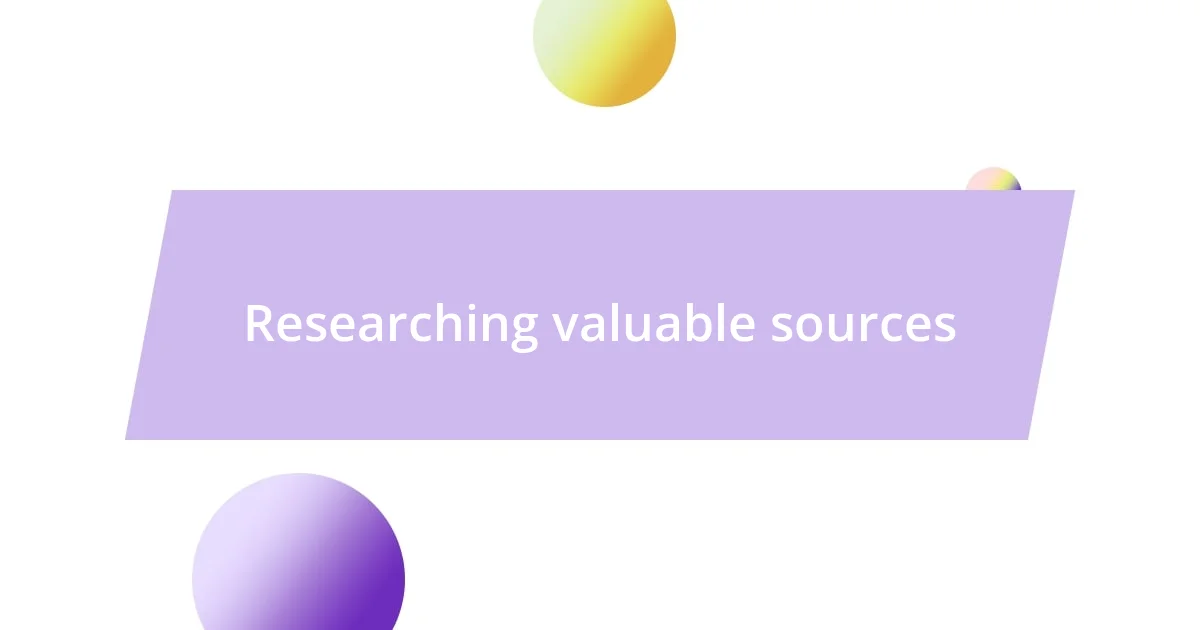
Researching valuable sources
When I dive into researching valuable sources, I usually start with online platforms that specialize in rare editions. Websites like AbeBooks and Alibris have extensive listings, and you can often find hidden gems by filtering through different categories. One time, I stumbled upon an old library auction site and managed to snag a collectible that others had overlooked. It’s a thrill to navigate through countless listings, feeling as if each click might lead to another treasure.
Here are a few valuable sources I recommend for researching rare editions:
- Online marketplaces: Platforms like eBay, Etsy, and specialized book auction sites frequently have unique listings.
- Local bookstores: Don’t discount your local indie shops; they often hold hidden treasures.
- Library sales: Public libraries host book sales that can yield spectacular finds at affordable prices.
- Antiquarian book fairs: Attending these events allows you to connect with other collectors and dealers directly.
- Social media groups: Join book collecting forums or groups, as members often share leads on rare finds and valuable sources.
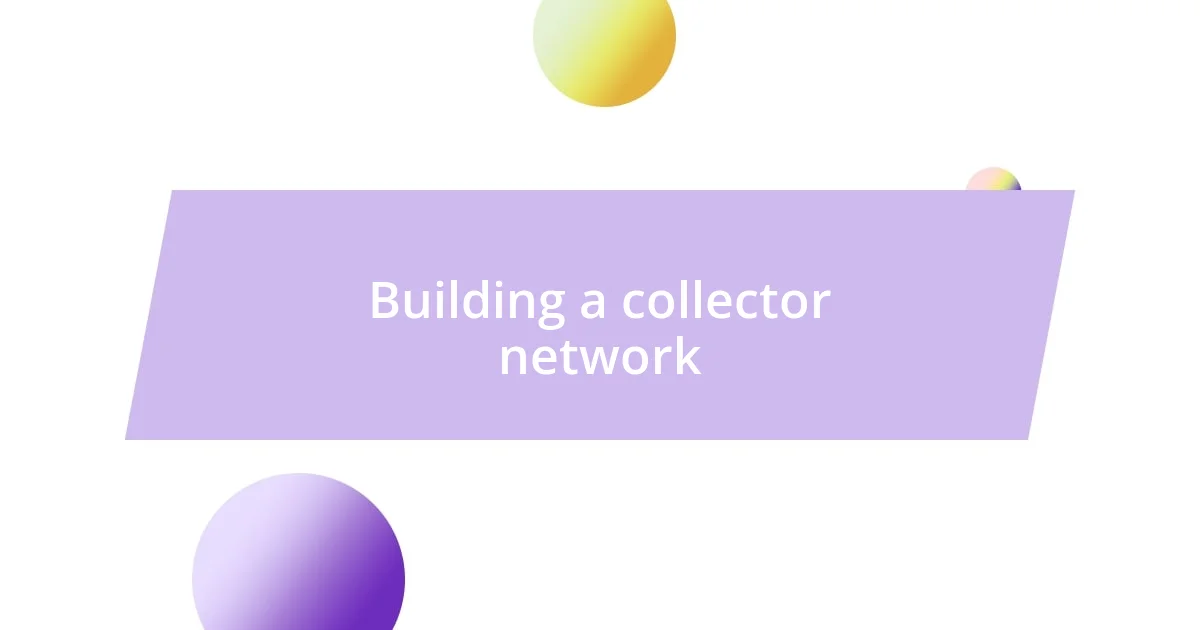
Building a collector network
Building a collector network can be an exhilarating journey. I remember the first time I attended a local book fair, eager yet nervous. It was eye-opening to see so many collectors in one place, all passionate about their finds. By engaging in conversations, I learned valuable tips and discovered new resources. There was a particular moment when an experienced collector shared his method for tracking down rare editions, and I felt like I had just been handed a secret map to treasure.
Joining online communities has been another game-changer for me. Platforms like Facebook and Reddit host vibrant groups filled with fellow book lovers who share their latest discoveries. One post led me to an exclusive auction where I snagged a signed copy of a novel I had been searching for. This connection to others who share the same passion creates a sense of camaraderie that is hard to replicate anywhere else. Engaging in these discussions not only enriches my knowledge but also opens the door to potential trades, which is a thrilling aspect I never anticipated.
I often find myself attending local meet-ups or collector clubs, and it’s one of the best ways to nurture my collector network. These interactions often lead to conversations about rare editions and the stories behind them. I recall meeting a collector who had a fascinating tale about how she unearthed a first-edition classic in an estate sale. Her enthusiasm was contagious, and it reminded me why building this network is so essential—not just for acquiring rare finds, but for sharing experiences and insights that breathe life into our collections.
| Connection Type | Advantages |
|---|---|
| In-person meet-ups | Direct interaction and networking. |
| Online communities | Access to a broader audience and constant updates. |
| Local book fairs | Opportunity to see items first-hand and negotiate. |
| Social media groups | Immediate access to trends and shared resources. |
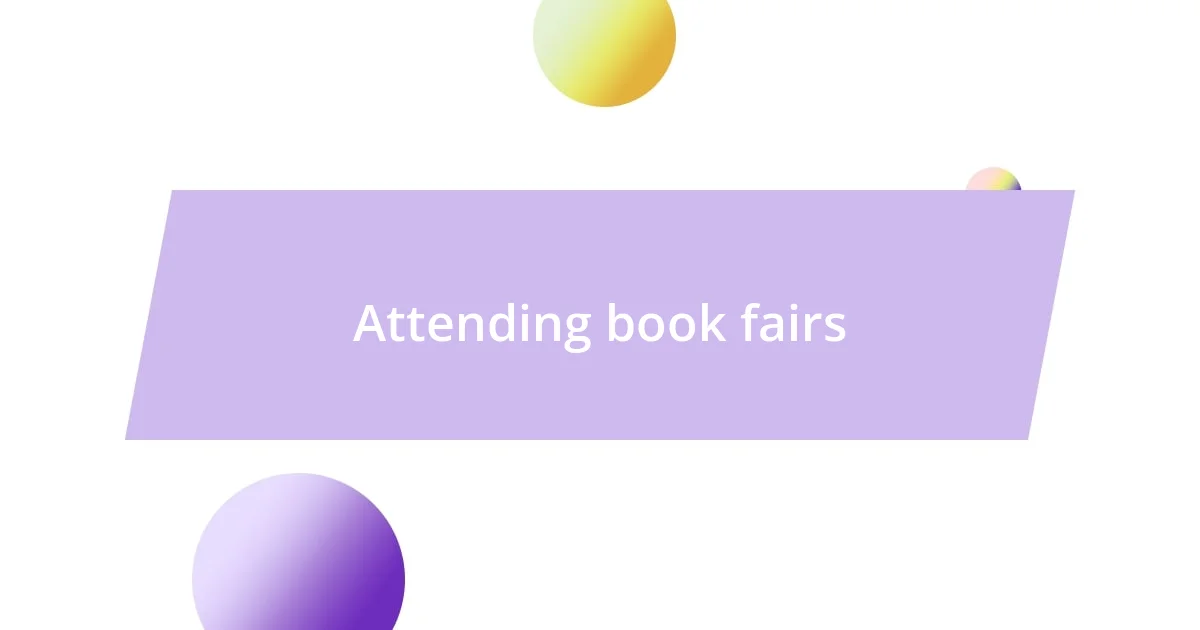
Attending book fairs
Attending book fairs has always felt like stepping into a wonderland of stories waiting to be discovered. Each stall brimming with books holds the potential for a hidden gem, like the time I was browsing a forgotten corner and stumbled across a pristine first edition of my favorite novel. The thrill of finding that book, surrounded by fellow enthusiasts, created an atmosphere charged with excitement and possibility.
There’s a certain energy at these events that’s hard to describe. I remember chatting with a vendor who had a deep wealth of knowledge about rare books. As he shared anecdotes about the history behind each piece he had for sale, I felt an urge to listen closely, almost as if he were sharing secrets. Have you ever experienced that rush of curiosity when someone opens up about a topic they’re passionate about? It’s infectious and makes the hunt feel even more rewarding.
I often find myself reflecting on the connections I’ve made while attending these fairs. One moment that stands out was when I met a fellow collector who had spent years tracking down a specific edition. As he recounted his journey, I realized that attending a book fair isn’t just about the books—it’s about the stories behind them. It’s about sharing a collective passion that binds us, where each conversation could potentially lead to the discovery of a rare edition that once seemed elusive. Don’t you think that’s what makes these events genuinely special?
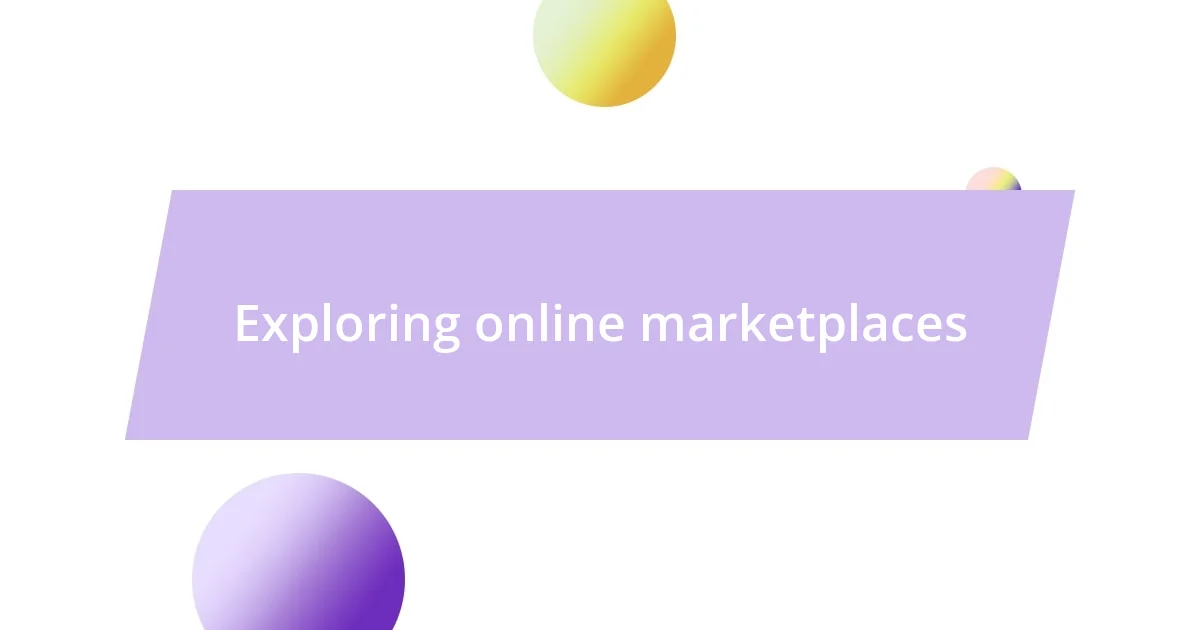
Exploring online marketplaces
Exploring online marketplaces has opened up new horizons in my quest for rare editions. I still remember my first experience on platforms like eBay and AbeBooks. It’s exhilarating to scroll through listings, each promising a potential treasure waiting to be uncovered. Have you ever felt that rush of excitement when you stumble across a listing that feels like it was meant just for you? I certainly have, especially when I found a signed first edition of my favorite author’s work, knowing it had a story of its own.
Navigating these marketplaces requires a bit of strategy, and I learned this the hard way. I initially dove in without a plan, often getting outbid at the last second. That adrenaline can be addictive, but I quickly realized that a calm approach was needed. Setting alerts for specific titles and using filters helped me zero in on what I truly desired. I once set an alert for a particular book, and weeks later, it popped up in my inbox. Not only did I secure it, but I also felt the thrill of anticipation turn into tangible satisfaction.
Moreover, online marketplaces are rich with stories, much like the fairs I’ve attended. Each listing can offer a glimpse into an object’s past—owners, travels, or perhaps even its creation story. I recall reading the description of a rare volume that spoke of its travels through different countries and owners, which made me feel connected to its history. Doesn’t it add an extra layer of meaning to think about where a book has been before it found its way to you? Engaging with these platforms is not just about finding items; it’s about embracing the journey they represent.
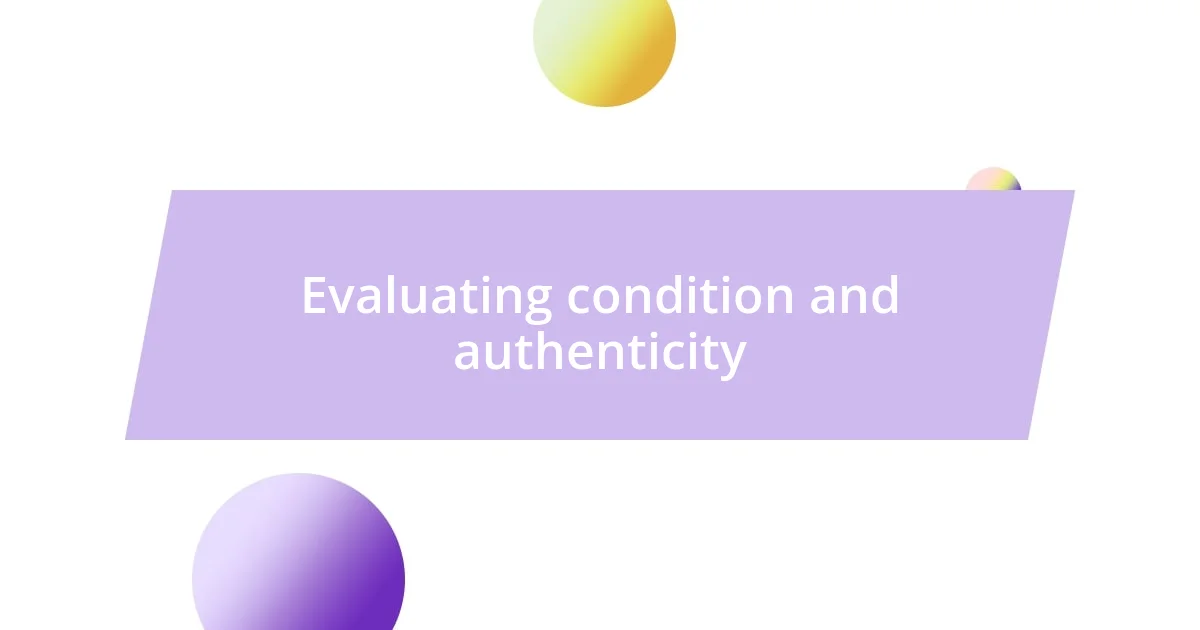
Evaluating condition and authenticity
When diving into the world of rare books, evaluating the condition and authenticity of each piece is paramount. I remember purchasing an old volume that looked enticing but upon closer inspection, I discovered the spine was cracked, and the pages were yellowed. It was a lesson learned; highlights and wear can significantly impact a book’s value. Have you ever felt that pang of disappointment when you realize that something you prized so dearly isn’t as pristine as you thought? I certainly have, and it underscores the importance of thorough examination.
Assessing authenticity can be equally thrilling and daunting. I recall a time when I found a signed edition of a beloved novel at a local store. The signature looked genuine, but I wasn’t entirely sure. I spent the next few days researching, comparing the handwriting against known examples. The moment I confirmed it was authentic was exhilarating; it felt like I was a detective unraveling a mystery. Isn’t it fascinating how the thrill of discovery also comes with the responsibility of ensuring what you own is what it claims to be?
I also find great value in provenance—knowing a book’s history can enhance its significance. There was a particular instance where I bought a well-loved classic that had annotations in the margins. As I unearthed insights from the previous reader, it was like connecting with them across time. You start to wonder, what thoughts crossed their mind while reading this? That emotional connection adds a rich layer to the experience. Isn’t that what makes collecting so special? It’s not just about the book; it’s about the life it has lived and the stories it carries.

Making informed purchase decisions
When it comes to making informed purchase decisions, I’ve learned that research is essential. I recall a time when I stumbled upon a rare volume at an antique shop. The seller claimed it was first edition, but something didn’t sit right with me. After doing some quick research on my phone, I discovered that the print run had a specific identifier. That moment of clarity not only saved me from a wrongful purchase but also made me appreciate the depth of knowledge that can guard against buyer’s remorse.
Price comparison is another important factor I’ve come to value. I remember being ecstatic about spotting a hard-to-find edition priced reasonably. But before clicking “buy,” I decided to check a couple of other platforms. It turns out that another listing had the same book at half the price. Isn’t it incredible how a little extra effort can lead to significant savings? I now always take the time to compare prices before making a decision, ensuring I’m not only excited but also smart about my investments.
Lastly, I can’t stress enough the importance of instinct. There was a rare book once that seemed to call out to me with its gorgeous cover and intriguing summary. Even though I could have indulged in a split-second purchase, I slept on it. The next day, something felt different; I sensed the urgency lifting and a clear mind reasserting the idea to hold off. When I finally returned, it was still there, and I felt a deep sense of peace about acquiring it. Have you ever had a moment where listening to your gut led to a more satisfying decision? Trusting my intuition has often turned out to be invaluable in my journey of collecting rare editions.
